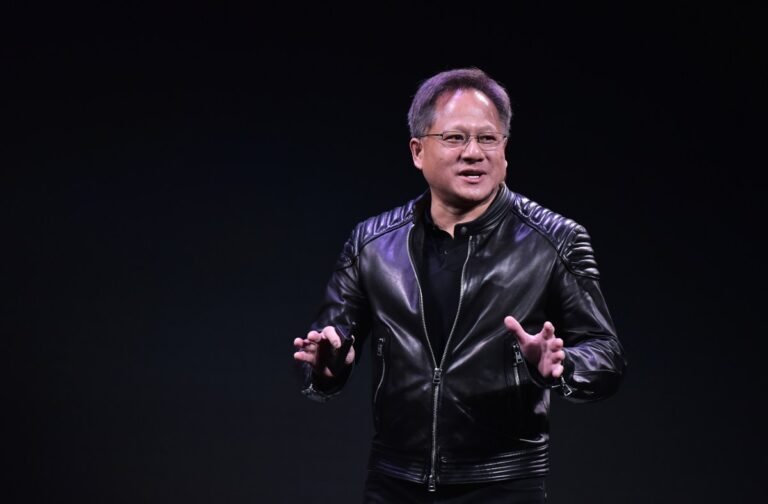
In 2016, Facebook launched a secret project designed to intercept and decrypt the network traffic between people using Snapchat’s app and its servers.
The goal was to understand users’ behavior and help Facebook compete with Snapchat, according to newly unsealed court documents.
The newly released documents reveal how Meta tried to gain a competitive advantage over its competitors, including Snapchat and later Amazon and YouTube, by analyzing the network traffic of how its users were interacting with Meta’s competitors.
Given that Snapchat encrypted the traffic between the app and its servers, this network analysis technique was not going to be effective.
Later, according to the court documents, Facebook expanded the program to Amazon and YouTube.

It’s election season in the U.S., and Instagram has changed the way that it recommends political content.
But the platforms won’t proactively recommend content about politics, which could limit users’ ability to learn about political issues from people outside of their existing circles.
Plus, Instagram’s definition of political content is a bit broad — it describes political content as anything “potentially related to things like laws, elections, or social topics.”If these changes bother you, you can adjust your settings to override Instagram’s political content filters.
Changing Instagram’s political content settingsIf you don’t want Instagram to filter out political content from your feed, here are steps to opt out of these changes.
Limiting political content is going to have a ripple effect.

Today, large swaths of the globe haven’t adopted air-source heat pumps because they don’t work as well when the mercury drops.
What’s more, the refrigerants most heat pumps use are either potent greenhouse gases or can break down into forever chemicals, researchers have found.
Heat pumps are used not just to heat and cool homes and vehicles, but also to generate heat for industrial processes, dehumidify buildings, keep food cold in grocery stores, and more.
The Biden administration announced in February that it was devoting $63 million from the Defense Production Act to boost heat pump manufacturing specifically.
Now it just has to get its super-fast compressors into production in time to catch the wave of heat pump adoption.

In an alkaline electrolyzer, two electrodes are submerged in a solution of alkaline water (usually consisting of a high concentration of potassium or sodium hydroxide).
Alkaline electrolysis differs from the other main approach, proton-exchange membrane electrolysis, in a few ways.
One of the most important, though, is that alkaline electrolysis doesn’t require expensive exotic metals like platinum.
That gives alkaline electrolyzers a cost advantage from the start, one that Evoloh says it builds on with its lower-cost manufacturing.
To further trim manufacturing costs, Evoloh uses roll-to-roll printing, a technique pioneered centuries ago by printing presses and more recently used in battery manufacturing.

Controversial crypto biometrics venture Worldcoin has been almost entirely booted out of Europe after being hit with another temporary ban — this time in Portugal.
The order from the country’s data protection authority comes hard on the heels of the same type of three-month stop-processing order from Spain’s DPA earlier this month.
Portugal’s data protection authority said it issued the three-month ban on Worldcoin’s local ops Tuesday after receiving complaints Worldcoin had scanned children’s eyeballs.
By contrast, EU data protection law gives people in the region a suite of rights over their personal data, including the ability to have data about them corrected, amended or deleted.
As Tools for Humanity’s lead DPA, under the one-stop-shop (OSS) mechanism in bloc’s General Data Protection Regulation (GDPR), it is responsible for investigating privacy and data protection complaints about the company.

With only 4 days left, the clock is ticking on your chance to snag the early-bird savings for TechCrunch Early Stage 2024.
Don’t miss out — secure your ticket now and save $200 before the 11:59pm PT deadline on Friday, March 29.
Explore the pros and cons of convertible notes, simple agreements for future equity (SAFE), and series seed financing rounds, and equip yourself with the knowledge to navigate these alternatives with confidence.
Don’t let this opportunity slip away — secure your early-bird ticket to TechCrunch Early Stage 2024 today and position yourself for startup success.
Is your company interested in sponsoring or exhibiting at TechCrunch Early Stage 2024?

Global Screening Services (GSS), a London-based regulatory compliance platform that helps financial institutions meet their global sanctions obligations, has raised $47 million in a round of funding.
The raise comes amid a spike in economic sanctions, with the U.S. issuing trade-restrictions and asset-blocking against states including Russia, China, Iran and more.
The company actually raised a similar amount of funding last year from big-name backers including Japan’s Mitsubishi UFJ Financial Group (MUFG), one of the world’s largest banks.
Banks often find themselves at the forefront of sanctions enforcement, given their role in controlling the flow of money around the globe.
GSS sells a sanctions-screening platform to help banks and other financial institutions comply with regulations.

The U.K. government has blamed China for a 2021 cyberattack that compromised the personal information of millions of U.K. voters.
The data breach began as early as 2021 but wasn’t detected until a year later.
Dowden said that a separate attempted cyberattack by a China-backed hacking group targeted the email accounts of U.K. lawmakers in 2021, but that parliamentary authorities mitigated the attempted breaches before any email accounts were compromised.
The Norwegian government previously attributed a 2018 data breach on its systems to APT31.
In 2020, Google security researchers linked APT31 to the targeting of email accounts belonging to the Trump and Biden presidential campaigns.

The negotiations between Fisker and a large automaker — reported to be Nissan — over a potential investment and collaboration have been terminated, a development that puts a separate near-term rescue funding effort in danger.
Fisker revealed in a Monday morning regulatory filing that the automaker terminated the negotiations on March 22.
Fisker said in the filing that it will ask the unnamed investor to waive the closing condition.
In February, Fisker laid of 15% of its staff (around 200 people) and last week reported having just $121 million in the bank.
Fisker had held talks with other automakers, including Mazda, but only Nissan recently remained at the table.

Nvidia could be primed to be the next AWS There are a lot of parallels in the two companies' growth trajectoriesNvidia and Amazon Web Services, the lucrative cloud arm of Amazon, have a surprising amount in common.
But AWS growth has begun to slow down, even as Nvidia’s takes off.
The question is whether Nvidia can sustain that growth to become a long-term revenue powerhouse like AWS has become for Amazon.
The short-term financial outlookAs the above chart notes, Nvida’s revenue growth has been astronomical in recent quarters.
Much like AWS, Nvidia will face stiffer competition eventually, but it controls so much of the market right now, it can afford to cede some.













